Ticket sales and seat reservation system for Divadlo Aréna
On how we created a ticket sales and theatre seat reservation system that helped the client increase its profits from ticket sales.
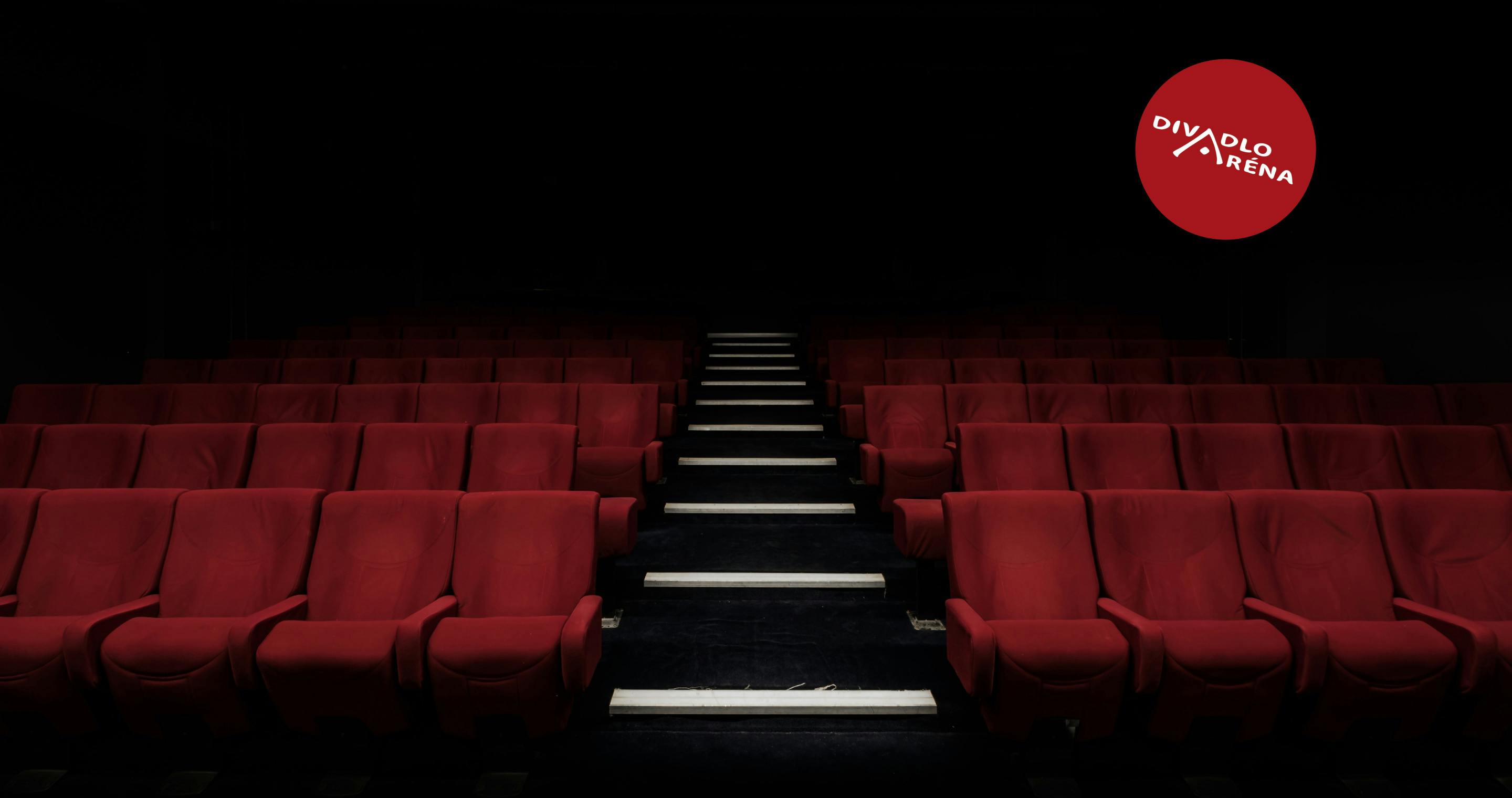
Informations
- Client: Divadlo Aréna
- Project type: web application
- Services: Design, frontend and backend development, QA
- Year: 2019 - present
Client
Divadlo Aréna is one of the oldest theatres in Bratislava. Initially, it served as a summer theatre – an uncovered amphitheatre, hence the name Aréna (arena). Since 2002, Divadlo Aréna has profiled itself as a theatre of topical themes, critical perspective, modern form and historical-political context.
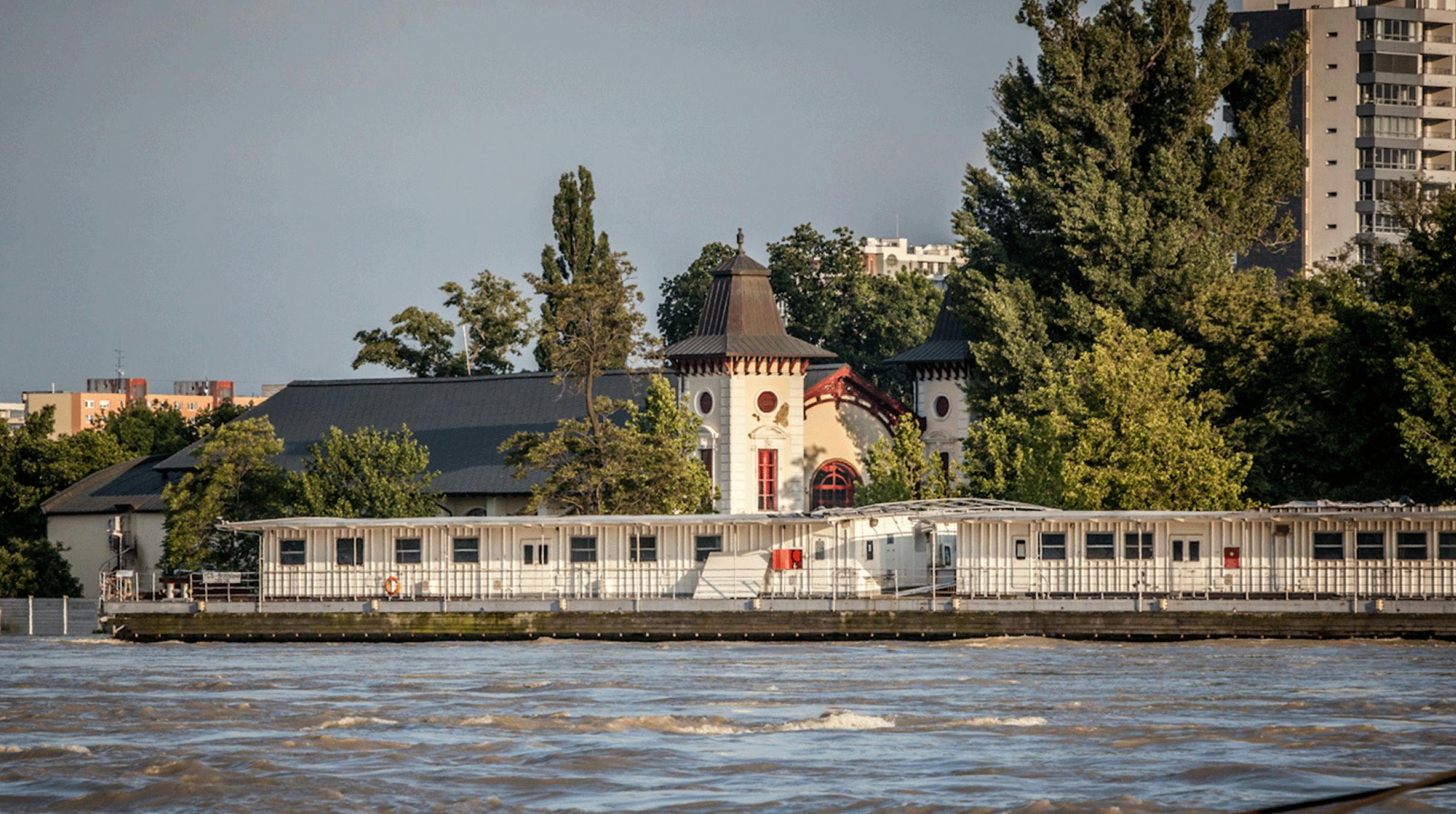
Challenge
How can we increase profits from ticket sales? The solution was the development of a new bespoke ticket sales system.
Our role
After successful collaboration with Divadlo Aréna in the past, the client approached us with another proposal for cooperation. This time with a request to design a new sales system. Our task was to create a solution that could replace the current system and also work with a third-party system. In addition to the development of the application, we also participated in the design and testing of the application.
The sales system that replaced the original solution
The theatre was using a third-party ticket sales system, which resulted in a significant loss of revenue from ticket sales. This system covered most of the processes in the theatre, from the creation of the programme, the categorisation of seats to the actual sale of tickets, and the evaluation of sales. Our goal was to create a comprehensive system that would make the theatre's daily work easier, more efficient, and would replace the currently used system.
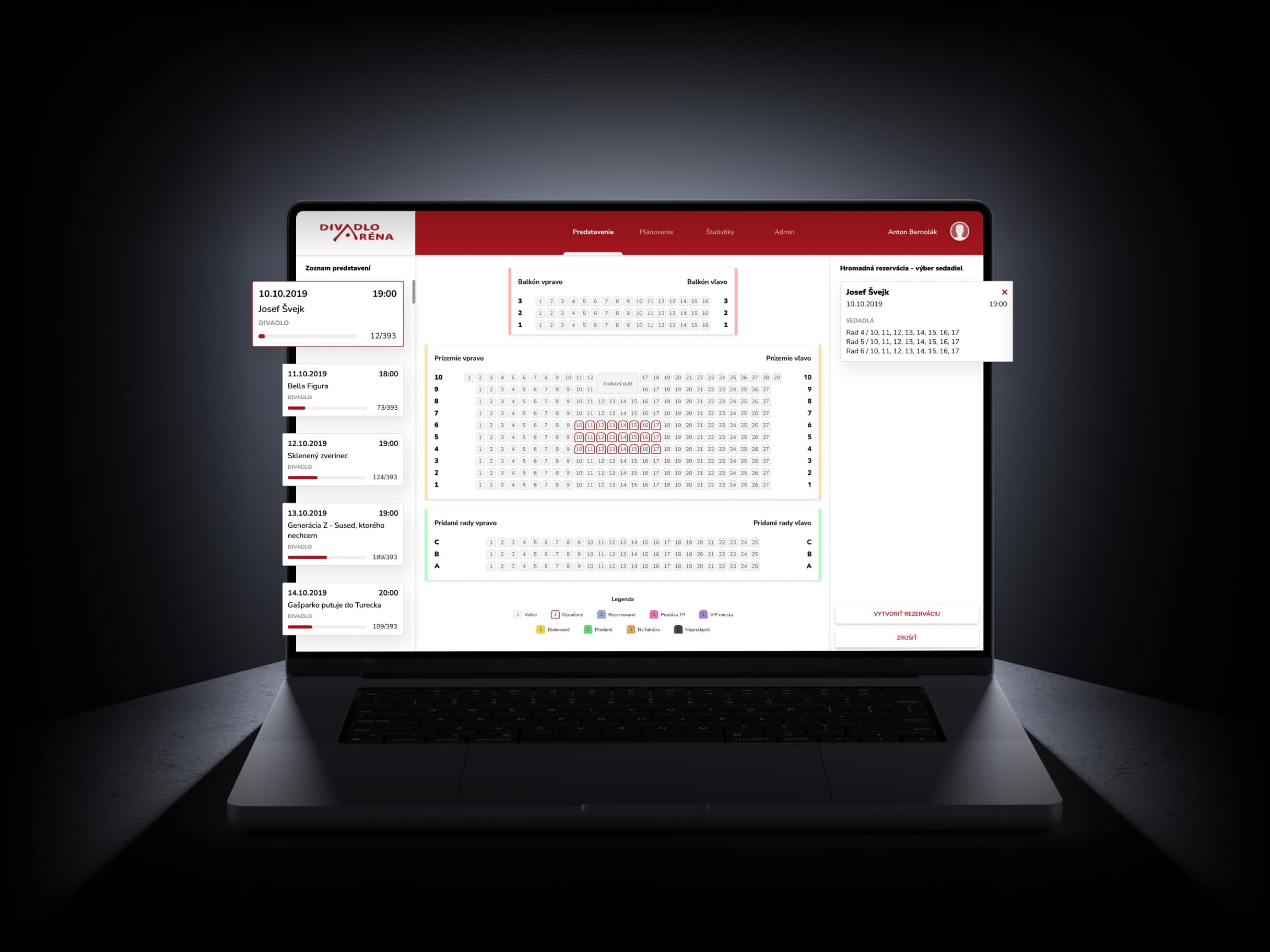
Process analysis & optimisation
The first step was to analyse the current state and map all key processes in the theatre. In order to get a complete picture of the theatre's functioning and needs, we decided to visit Divadlo Aréna in person. On site, we were able to look at the processes through the eyes of the employees, which helped us identify the room for improvement. Based on our findings, we developed a proposal for a new sales system.
Programme creation
As the performances are performed at irregular intervals, the employee has to create a new programme for each week. Our goal was to optimise this process and design the system to be as easy as possible for the employee to use. The system allows the employee to create a new performance, select the date of the performance, and set different price levels for tickets.
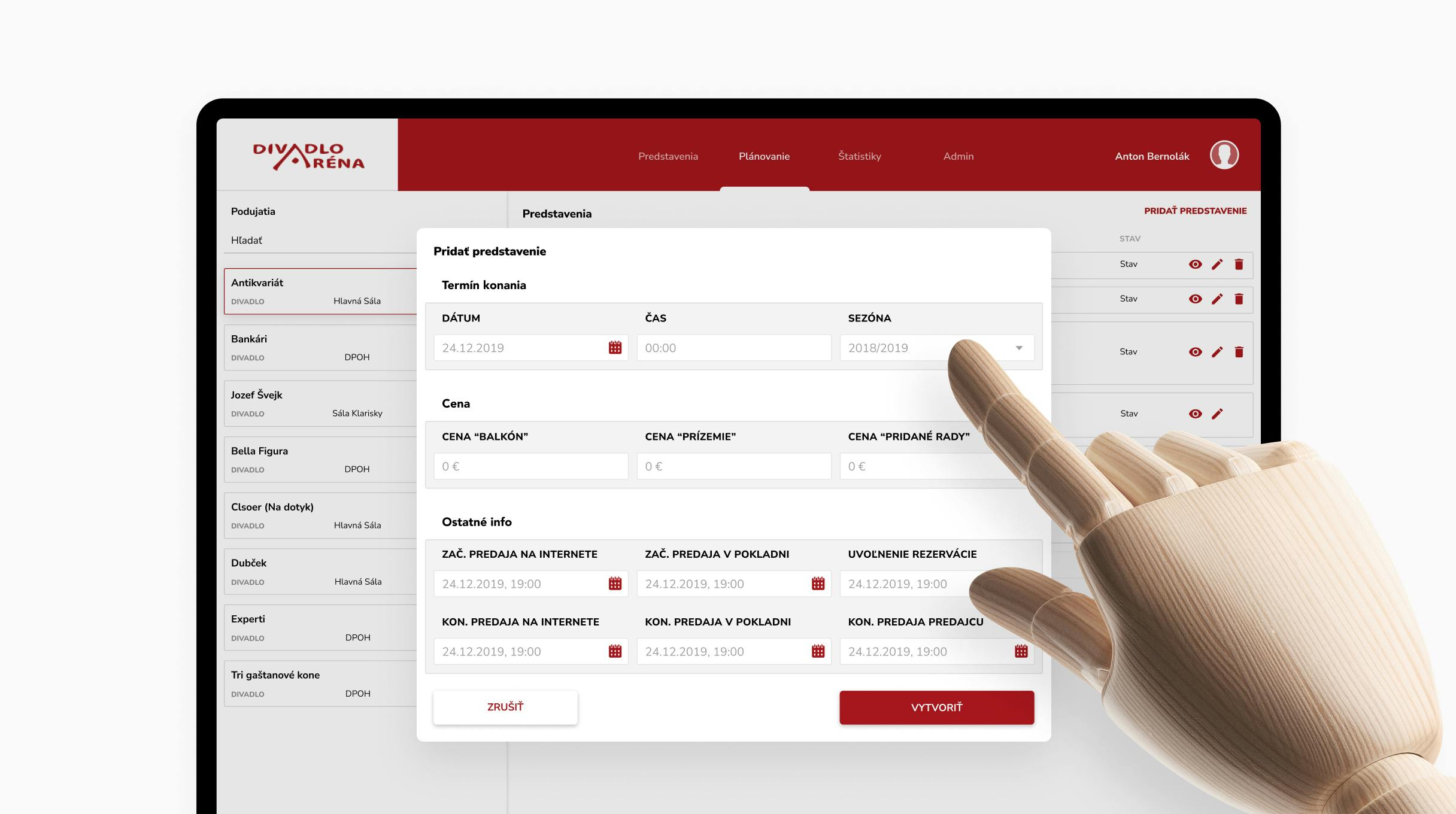
Overview of performances
Thanks to the analysis, we found that the original system was not clear enough, and the search for the necessary information about the performances was unnecessarily lengthy. Therefore, as part of the design of the new system, we displayed the most important information about the performances on the main screen in the form of tabs in chronological order.
This gives employees an overview of the sell-out rate of individual performances, making it quicker and easier for them to identify which performances are not selling out as expected. Based on this information, the marketing department may launch sales promotion activities or cancel ticket sales for a given performance altogether.
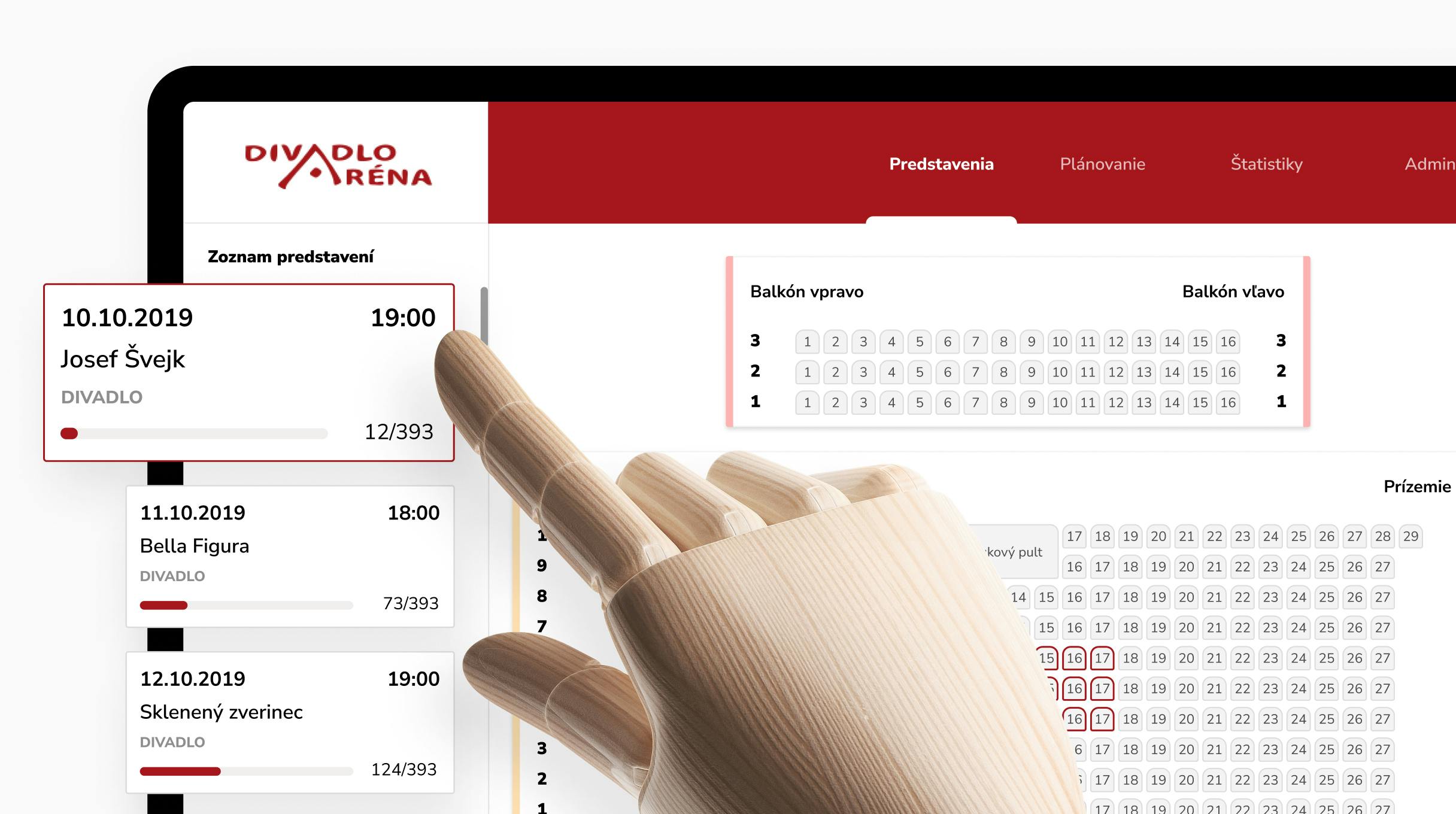
Seat categorisation
Before tickets go on sale, seats must be manually categorised for each performance date. The first step was to map out all the possible states that can occur during seat categorisation. We then assigned them colour labels according to their significance. For a good user experience, we designed a visual interface that allows employees to conveniently categorise seats. When categorising seats, the employee may mark the seats individually with a click or mark several at a time.
Ticket sales
Tickets can be sold in three ways: in person at the box office, online via the Divadlo Aréna website, or through third-party services. The project also included a public interface where customers can buy tickets for performances. Nowadays, over 90% of users also access the Internet using a mobile phone, so it was essential to optimise this process for mobile devices.
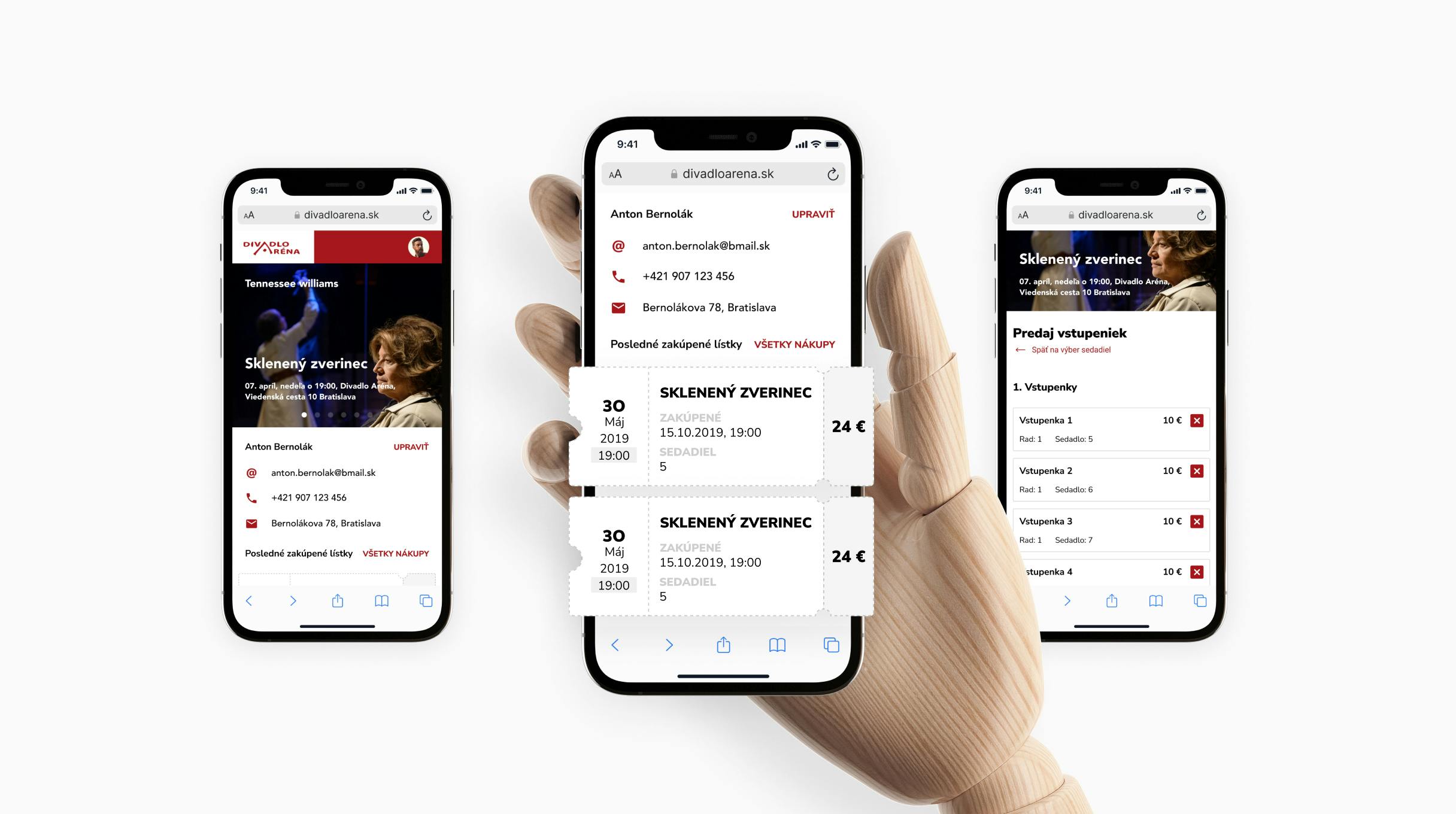
Real-time synchronisation of both sales systems
A big challenge for us was synchronising the new sales system with the existing one. The new sales system connects to the API of a third-party system, allowing us to retrieve important information about the purchased tickets. This information is necessary to prevent the resale of tickets.
Statistics
The statistics provide valuable information to employees about the theatre's performance. In the reports, employees can analyse ticket sales for selected periods, compare sales and occupancy statistics for individual performances.
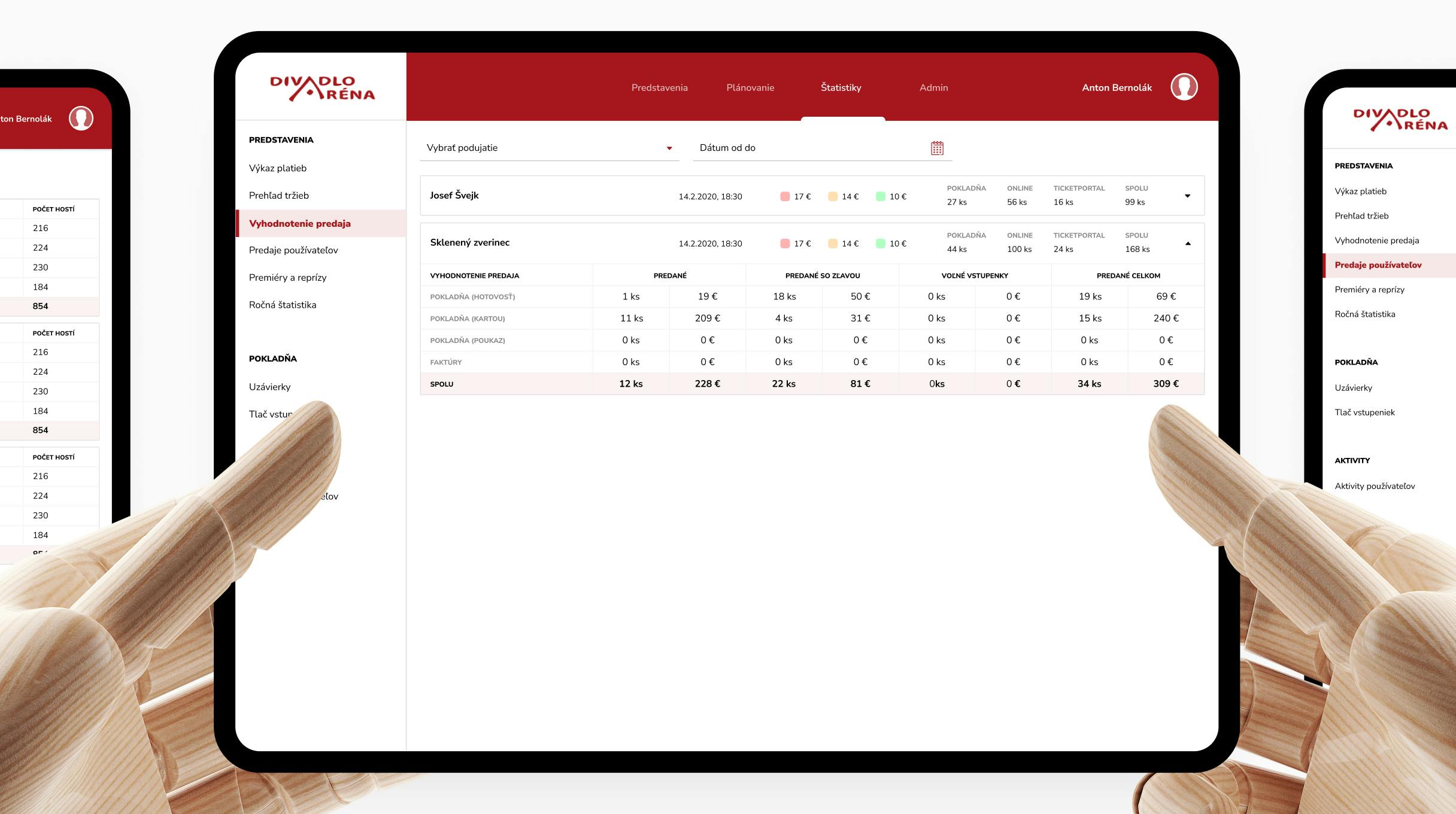
Admin interface
The system's administration interface allows the employee to update the names and capacities of individual halls, add or remove halls according to the current needs of the cinema, or modify the visual appearance of the ticket. Last but not least, the employee has the possibility to set different types of discounts for regular customers, students, pensioners or families with children.
Conclusion
The new ticket sales system allowed for the increase of the number of tickets sold at full price, which significantly increased the profit from individual ticket sales. The share of tickets sold through the internal system is currently around 70%.